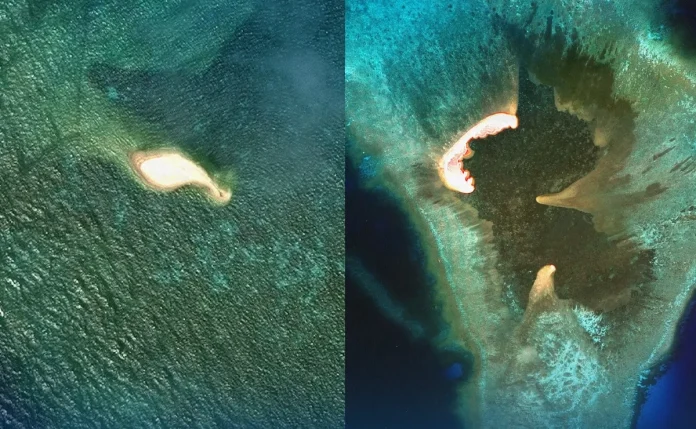RimbaWatch raises alarm: Oil and gas overlap with Sarawak’s Luconia Shoals National Park, a protected marine biodiversity hotspot
PETALING JAYA: Environmental watchdog RimbaWatch has raised serious concerns over oil and gas activities taking place in the waters off Sarawak within the Luconia Shoals National Park (LSNP), Malaysia’s largest marine park, despite its legal designation as a “Totally Protected Area.”
Covering 1,011,772 ha within the Coral Triangle Implementation Area – a multilateral initiative to protect some of the world’s most biodiverse waters – the LSNP was gazetted by the Sarawak government in 2018.
At the time, Chief Minister Tan Sri Abang Johari Openg (now Premier) stated that the park was mainly for conservation and preservation purposes, and would remain out of bounds for oil and gas exploration.
However, RimbaWatch’s new policy brief, “An Assessment of Oil and Gas Exploration and Production in the Luconia Shoals National Park”, shows that the entire LSNP overlaps with seven active oil and gas blocks: SK318, MLNG Dua, SK320, F29/F14, SK418, SK316, and 3B.
“These blocks host 31 wells, seven platforms, and at least five gas pipelines, commercialising eight known fields,” it said.
“Five of the seven blocks began operations after the park’s 2018 gazettement, all of which obtained environmental impact assessment (EIA) approvals from the Department of Environment.”
RimbaWatch highlights LSNP’s ecological importance, describing it as a biodiversity hotspot.
“A WWF-Malaysia report identifies the park as home to 12 submerged reefs, two atolls, numerous marine mammals, and highly productive fishing zones, including the Beting Patinggi Ali reef,” it said.
It also warns that oil and gas activities pose severe environmental risks, including acoustic disturbance to marine mammals, reef and seabed damage, increased sedimentation, oil spills, and infrastructure failures.
“Between 2014 and 2022, the Department of Environment recorded 130 oil spills in Malaysian waters, with damage to marine life cited as the primary impact.
“The LSNP is described as a potential “carbon bomb,” containing at least 14.3 trillion cubic feet of recoverable gas – about 20% of Malaysia’s remaining gas reserves – with projected emissions of nearly one billion tonnes of greenhouse gases.”
RimbaWatch director Adam Farhan noted that, contrary to the state government’s promise that the LSNP would be out of bounds for oil and gas exploration, the park has instead become a major site for fossil fuel development.
“This not only threatens reefs, fish, whales, and sharks, but also undermines Malaysia’s climate commitments.
“Existing environmental laws have failed to prevent this, highlighting the urgent need to align state economic and conservation goals.”
The report recommends strengthening the National Park & Nature Reserves Ordinance 1998 to explicitly prohibit harmful activities such as oil and gas exploration.
It also calls on PETROS and PETRONAS to end operations in the Coral Triangle Implementation Area and other marine protected zones, while urging the federal government to commit to a fossil fuel phase-out aligned with a 1.5°C global pathway.
RimbaWatch further encourages Malaysia to support a Fossil Fuel Non-Proliferation Treaty, joining other Global South nations in establishing a global framework for an equitable energy transition.








